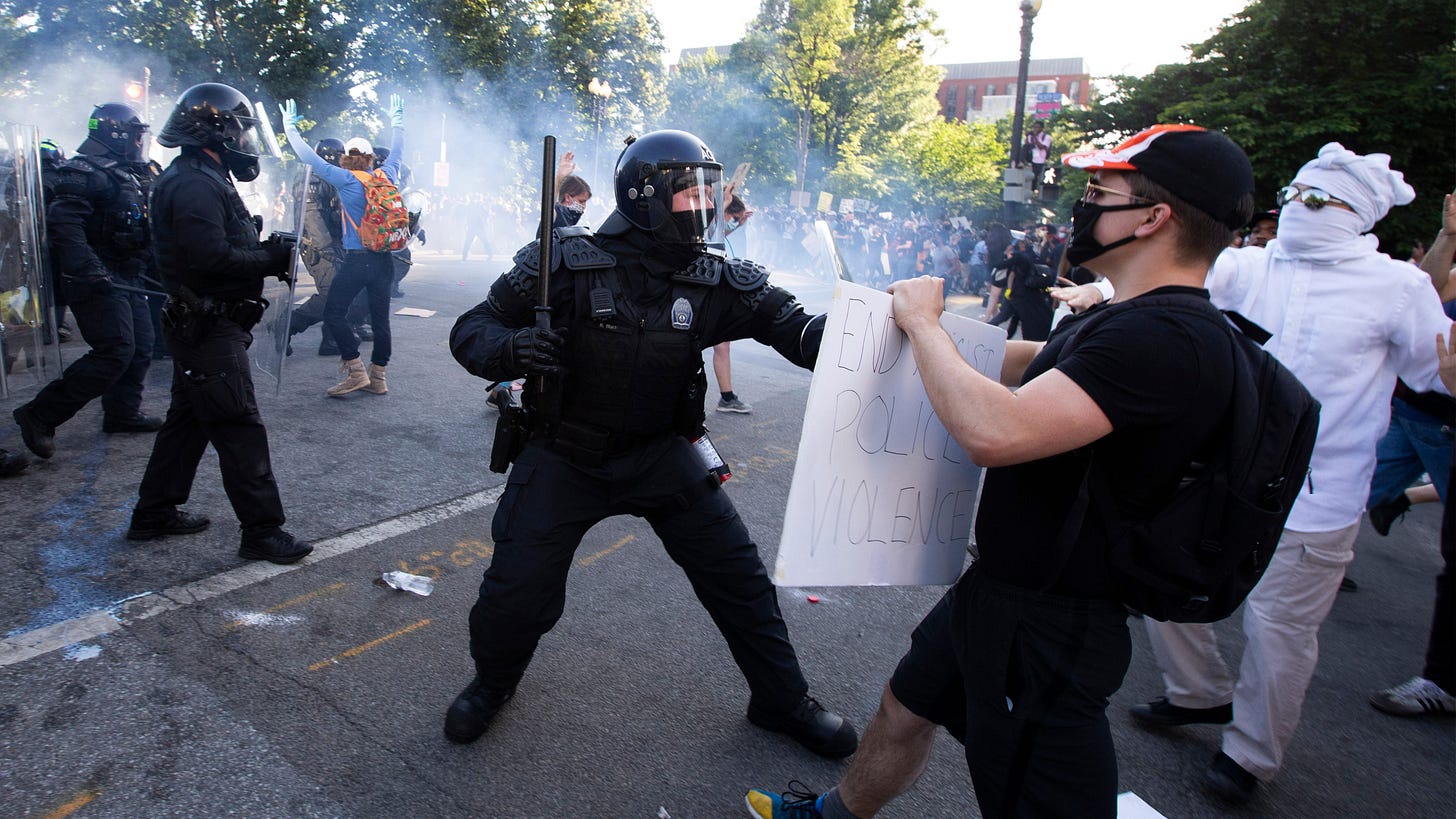Animal law's reckoning
The animal rights movement's shift away from "law and order" politics is crucial to inspiring change
NOTE: I’m writing every day in memory of Lisa, who died on October 13. Not all of these posts will be sent out by email. So if you want to follow this journey, visit the blog every day. I’ll try to post by 10 am each day, but occasionally, I’m sure a post will be late.
When I was growing up in central Indiana, trust in police – and, more generally, in government – was basically taken for granted. The local community lionized police officers. And the national media, when it talked about criminal justice, focused mostly on the supposed epidemic of violent crime. Hillary Clinton’s racially-tinged attack on “superpredators” and Joe Biden’s infamous crime bill were just examples of the broader discourse on law and order. The cops were good. The perps were bad.
How things have changed.
Today, law enforcement’s reputation is plunging, as videos of police brutality go viral across the nation. It’s become increasingly common for even conservatives to express their profound distrust of the national security state. (This is one of the reasons that Glenn Greenwald, the legendary critic of government power, has become a hero to many on the right.) And the past year has seen powerful movements to defund the police and, more generally, recognize that our criminal justice system is seriously biased, if not fundamentally corrupt.
The animal rights movement, in many ways, has come late to this party. The conventional wisdom in animal rights is that cops and prosecutors are our friends; that we need to put animal abusers in jail; and that passing more punitive laws against animal cruelty is crucial to progress. While some brilliant critics, like legal scholar Justin Marceau, have come forward to challenge this conventional wisdom, progress has been slow. To date, the most important animal law organizations still focus almost entirely on prosecuting small scale animal abuse while leaving abusive systems of power untouched. Worse yet, in many cases, mainstream animal law organizations have actively undermined the grassroots activists who have bravely challenged these systems. I discussed in a recent podcast with Justin Marceau some of the more nefarious examples of these efforts — including efforts to deny nonviolent animal rights activists access to legal support — but there was one thing we mostly left out:
The law and order narrative will never inspire a political movement.
This is partly because law and order is not a narrative of change. To the contrary, an insistent on order generally aligns us with both political allies and narratives that insist on maintaining the current social order. That’s not a good story for those who are trying to inspire change. And our power as a movement is only as strong as the stories we tell.
This is partly because of the particularities of American politics. From the Tea Party to the Civil Rights Movement, there is a long history of civil disobedience as a necessary mechanism for change. Indeed, some political theorists have described civil disobedience as a necessary element of American democracy, a check on power that has been corrupted. Sticking to the law and order narrative fails to grasp the deep-seated power of the narrative of resistance ingrained in American political life.
But the most important reason the law and order narrative has failed us is because it falsely assume that change happens through traditional models of power. We believe we must depend on the government, the prosecutor, the cop to stop animal abuse. Effective movements, in contrast, recognize that real power comes from ordinary citizens coming together in movements. This is what Stanford sociologist Doug McAdam calls “cognitive liberation”: the idea that something has gone fundamentally wrong with the world, but also that we have the power to change it if we work together.
This is one of the many reasons the rise of open rescue, and the defense of the right to rescue that will unfold in less than 3 weeks in North Carolina, is so crucial. Unlike the traditional law and order narrative, where we beg for government officials to do something about animal abuse, open rescue takes the liberation of animals into our own hands. The growing number of open rescues across the nation and world, in the face of severe prosecutions, shows the power of this strategy to create change — and become even more powerful precisely because of efforts to crush it. And if we win, in one of the more conservative counties in this nation, it will send shockwaves across the nation.
So what are your thoughts on the status of animal law in this movement? Do you think legal advocacy has succeeded? What could we do better? And what has the animal law movement done well, that we should try to replicate in the future?


